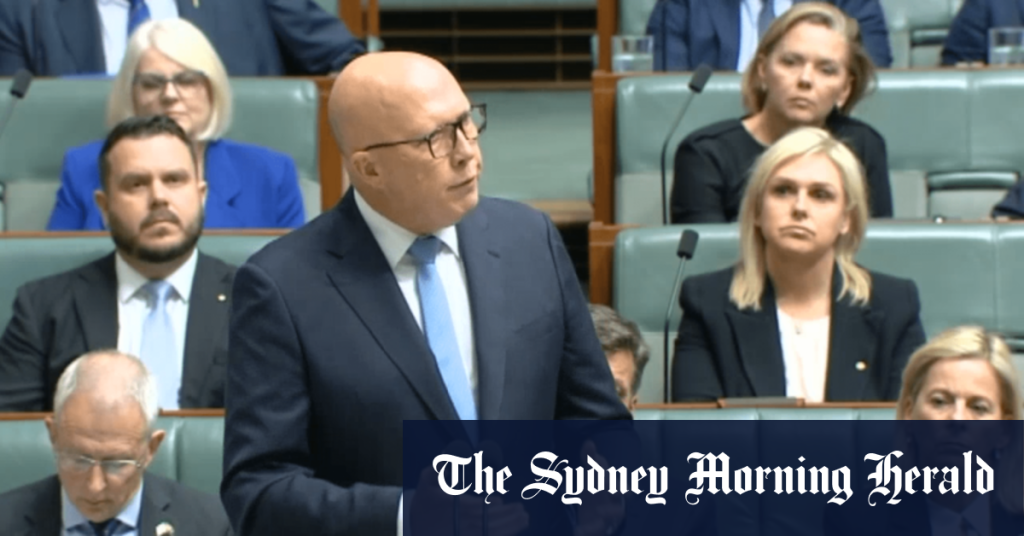On October 7, Prime Minister Anthony Albanese introduced a motion that was rejected by Opposition Leader Peter Dutton. Dutton condemned the motion as being “politically motivated,” indicating that there were ulterior motives behind the Prime Minister’s actions. This rejection highlights the ongoing political tensions between the two leaders and their respective parties.
The motion introduced by Albanese on October 7 was met with criticism and rejection from Dutton, who accused the Prime Minister of playing politics rather than addressing important issues. This refusal to support the motion suggests that there may be deeper divisions and disagreements between the government and opposition on various policies and priorities. The rejection also indicates a lack of cooperation and bipartisanship in the current political climate.
Dutton’s response to the motion reflects the combative nature of Australian politics, with both major parties often engaging in heated debates and disagreements. The rejection of the motion by the Opposition Leader highlights the ongoing challenges in reaching consensus and compromise on key issues facing the country. This lack of unity and cooperation can hinder progress and effective governance, as both sides focus on scoring political points rather than finding common ground.
The rejection of the motion by Dutton may have broader implications for the government’s ability to advance its agenda and priorities in the future. With the opposition leader openly criticizing and dismissing the Prime Minister’s actions, it may be more difficult to achieve cooperation and bipartisan support on critical issues. This political gridlock and partisan divide could stall key initiatives and reforms, leading to increased instability and uncertainty in the political landscape.
The rejection of the motion by Dutton also underscores the importance of effective communication and collaboration between the government and opposition in order to address pressing challenges facing the nation. Without a willingness to engage in constructive dialogue and find common ground, the political process can become bogged down in partisan bickering and gridlock. Leaders on both sides must demonstrate a commitment to working together for the greater good of the country.
In conclusion, the rejection of Prime Minister Albanese’s motion by Opposition Leader Peter Dutton highlights the ongoing political tensions and divisions in Australian politics. This refusal to support the motion reflects the challenges in achieving cooperation and consensus on key issues facing the nation. Moving forward, both leaders must find ways to bridge their differences and work together towards common goals, in order to effectively govern and address the needs of the Australian people.














